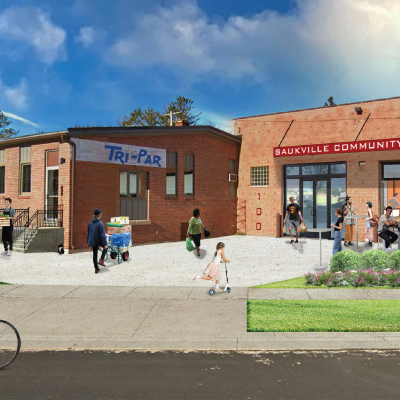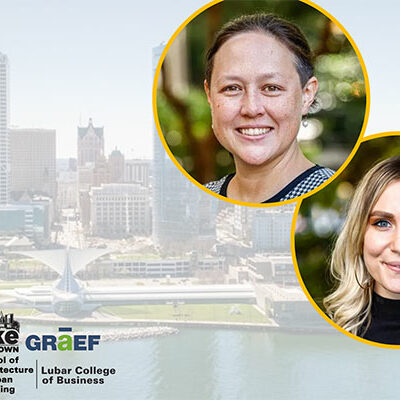The Master of Urban Planning (MUP) is a professional program designed to prepare students for careers in public planning agencies, nonprofit organizations or in private practice. This two-year program is fully accredited by the Planning Accreditation Board (PAB). No specific undergraduate background is required for admission to this degree program, although many students come from backgrounds in Architecture, Geography, Political Science, Engineering, Urban Studies, and Business.
During the program, students learn skills they need to pursue careers in planning though classes, internships and other opportunities, such as Faculty Research, Study Abroad, Innovative Cities lectures, and the annual Causier Lecture.
To apply, click the link on the right side of this page and follow the instructions. Our application includes a reason statement, which is important for determining if applicants are a good fit for our program. Our Master of Urban Planning program is practical and professionally-oriented. Therefore, when reviewing reason statements, our Master of Urban Planning admissions committee looks for items such as:
Insights about how your personal experiences have led to an interest in becoming a planner.
- Why you think professional planning is important and what you think planners could do better.
- Specific ideas about what you hope to contribute to your community and world with a professional planning degree.
- How you think that our UWM Master of Urban Planning program will help you achieve your professional goals.
DUP conducts hands-on projects with neighborhood groups, local agencies, non-profit companies, consultants, and other organizations
DUP projects illustrate physical changes to transportation, land use, water, and economic development systems to help create and strengthen social and economic bonds within specific geographic areas.
DUP work is shared through the media and used by organizations and agencies at local, regional, state, and national levels.
DUP prepares students to advance social, environmental, and economic goals as leaders in their organizations and communities and helps cultivate student commitment to social and economic justice.




